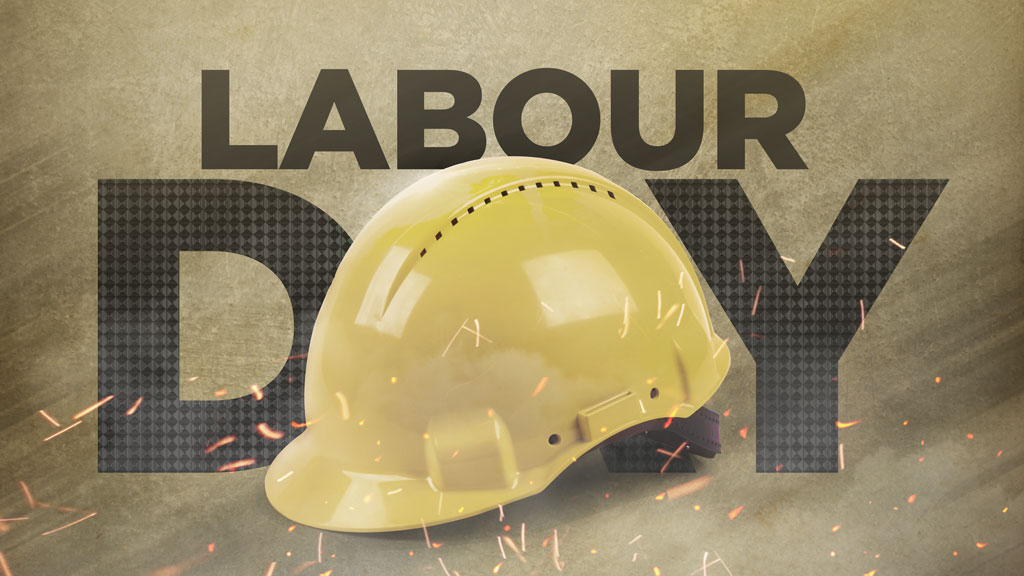Canada has always been built on the backs of workers. This has never been more evident than in the last 18-odd months when the new normal created by a never-before-experienced pandemic saw many lose their jobs or deal with an ever-changing set of rules and regulations on what it meant to go to work every day.
COVID-19 has tested our resilience, found cracks in our existing systems and shone lights into all corners and facets of our way of life.
And, since day one, those deemed “essential” have had to bear the brunt of continuing to go to work each and every day. Our frontline workers in our grocery stores and pharmacies; our health care workers in long-term care, hospitals and clinics; teachers, emergency service workers, and so many others, including skilled trades workers. This Labour Day, let’s recognize the important contributions and sacrifices they’ve made to keep Canada going.
What you do each and every day matters. It’s helped keep our country moving and now, these workers deserve investments in their future.
In the throes of a federal election, we need those running for office to commit to building back, better. To Canada’s building trades workers, that means three things.
One: Support for Canadians traveling for work: currently, skilled trades workers aren’t allowed the same tax treatment as other professionals. Given the nature of construction, some areas will end up experiencing higher levels of construction activity resulting in labour shortages while others will see high unemployment, requiring skilled trades workers (or journeypeople) to travel for work. Skilled trades workers deserve to deduct their work-related travel expenses from their income, like so many other professionals. All we’re asking for is fairness under the Tax Act.
Two: As we transition to Net Zero, workers need to be at the forefront of the conversation, not an afterthought. That means investing in retraining and supports and creating new job opportunities through investments in large-scale infrastructure especially in areas more affected by the downturn in oil and gas. An April 2021 TD report estimates that 50 to 75 per cent of the 600,000 workers in the energy sector – between 312,000 to 450,000 workers – are at risk of displacement in the transition to Net Zero through 2050. These workers need support now.
We need to invest in new, innovative green technologies like Small Modular Reactors, carbon capture and increase investments for industrial and commercial retrofitting that will help Canada meet its climate goals and keep Canadians working. There’s an opportunity to make historic investments in regional power grids such as the Atlantic Loop. The Atlantic Loop which would help transform the energy landscape of Canada’s Atlantic provinces by taking clean energy generated at hydro dams in Newfoundland and Labrador and Quebec sending it south to Nova Scotia and New Brunswick where fossil fuels are still in use.
Three: Creating a stronger workforce by increasing opportunities in the skilled trades. What do we mean by this? Since the start of the pandemic, the BIPOC community has been disproportionately affected. We can build back better, increase pathways to apprenticeships, increase diversity in the skilled trades by incorporating community benefits agreements (CBAs) as a mandatory component of any infrastructure project. CBAs can enable apprenticeships, establish grounds for workplace development initiatives, and provide funding and economic support for local communities. CBAs can set forth goals for Indigenous Canadians and other underrepresented groups including women, leaving a legacy of experience, skills training and employability in communities where projects take place.
This Labour Day, let’s recognize the contributions — and sacrifices — Canadian workers have made in adapting to health and safety changes; legislative and regulatory changes as the pandemic has marched on. Let’s show our appreciation to the skilled trades workers that have continued to go to work each and every day, by investing, thoughtfully, in our collective future.
Sean Strickland is executive director of Canada’s Building Trades Unions. Send Industry Perspectives columns ideas or comments to editor@dailycommercialnews.com









Recent Comments